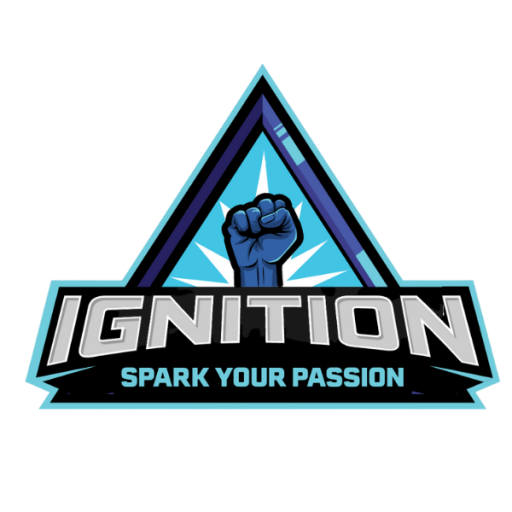Team gaming is more than just fun – it’s a powerful way for autistic teens and young adults to build real-life skills. By playing co-op games like Mario Kart or teaming up in a Dungeons & Dragons quest, gamers can practise communication, problem-solving and teamwork in a natural and engaging way.
Whether racing together or battling a tabletop wizard, every session is designed to support social growth and connection in a safe, welcoming space. In this post, we’re diving into how team gaming can prepare young autistic people for real-world teamwork.
Team Gaming as a Bridge Between Play and Purpose
Games that involve teamwork require players to set shared goals, negotiate roles, and support one another. These skills can directly translate to everyday situations like school projects, workplace collaborations, and community involvement.

For young autistic people who may find traditional social settings challenging, team gaming offers a low-pressure way to practise and grow these abilities. Participants at Ignition Gamers aren’t just playing games – they’re learning how to lead, listen, and contribute to a group.
What Makes Team Gaming So Effective?
1. It’s a safe environment for social interaction
Many autistic teens and young adults thrive in structured environments. Team gaming creates clear goals and predictable routines, reducing anxiety and encouraging engagement.
At Ignition Gamers, Peer Support Workers help guide interactions, ensuring every participant feels heard, valued, and part of the team. This supportive approach mirrors real-world teamwork, where mutual respect and understanding are key.
2. It provides role definition and leadership opportunities
Games often require players to take on specific roles, such as strategist, supporter, or communicator. These roles help participants understand their strengths and how they contribute to group success. Over time, they gain confidence in leading, delegating, and adapting – essential skills in any team setting.
3. It builds resilience through low-stakes challenges
Team gaming allows young people to try, fail, and try again – all in a fun, low-pressure environment. Whether figuring out how to beat a tricky level or regrouping after a tough round in D&D, they learn that mistakes are part of the process. This helps build emotional resilience and the confidence to keep going, even when things don’t go to plan.

4. It encourages empathy and perspective-taking
Working as part of a team means thinking about how others feel, what they need, and how best to support them. In co-op games, players learn to cheer each other on, celebrate wins together, and offer help when someone’s stuck. These small moments of empathy add up, helping participants build stronger, more meaningful connections – both in and out of the game.
From Mario to Meetings: Real-Life Parallels
Let’s look at how team gaming prepares young people for three key real-world scenarios:
School Co-Op Projects
In co-operative video games, players often need to split tasks and communicate effectively, just like in a school assignment. Team gaming helps participants practise active listening, expressing ideas clearly, and resolving differences respectfully.
Workplace Collaboration
Workplaces are full of team dynamics: brainstorming sessions, project deadlines, and shared responsibilities. Through games, participants learn how to give and receive feedback, work through challenges, and celebrate wins – all vital for workplace success.
Community Participation
Whether volunteering or joining a community group, working with others is part of life. The social confidence built through gaming often gives young people the courage to step out of their comfort zone and contribute in meaningful ways.
Peer Support: The Secret Ingredient
At Ignition Gamers, sessions are led by Peer Support Workers with lived experience of autism, mental health challenges, or other hidden disabilities. These mentors genuinely understand the unique barriers and anxieties participants may face because they’ve been there too. That lived experience makes a huge difference. It means our Peer Workers don’t just guide the games – they get the people playing them.

One of the most powerful aspects of this peer-led model is the one-to-one support our staff can offer during sessions. Some participants may need extra encouragement to join a co-op game or help to understand the rules. Others may just need someone beside them who listens without judgment. Whether helping someone find their voice in a Dungeons & Dragons session or quietly supporting them through a team-based Mario Kart race, our Peer Support Workers are there to check in, step up, and help participants feel safe and included.
This kind of individual support builds trust over time. It’s often the bridge between feeling like an outsider and becoming an active part of the group. When participants connect one-on-one with a Peer Worker who has walked a similar path, it creates a sense of understanding and acceptance that can’t be taught – it has to be lived.
And the impact goes beyond the session itself. That positive connection often becomes the starting point for greater confidence, stronger communication, and a growing willingness to engage not only in games, but in life.
Beyond the Game: Real Stories from Ignition Gamers
We’ve seen countless young people blossom through team gaming.
One participant, Lily*, used to shy away from activities with other people. She was very concerned about being in a crowded social place. Now, with help, she socialises with other clients from Ignition by going out to dinner.
Another participant, John*, struggled to be self-motivated. Through regular gaming sessions, he began coming out of his shell and helped new players feel welcome and included, becoming a leader in his own right. He is now working for Ignition Gamers!
These stories show that team gaming is not just fun – it’s transformational.
Choosing the Right Games for Team Growth
Not all games are created equal when it comes to promoting teamwork. At Ignition Gamers, we carefully select games that are:
- Co-operative rather than overly competitive
- Easy to understand but challenging enough to encourage planning
- Flexible in pace and structure so that participants can play comfortably
Examples include: Super Mario Bros., Party Animals, Vampire Survivors, Dungeons & Dragons, Hero Quest, Magic: The Gathering, and more!
Team Gaming is Playing with Purpose
Team gaming at Ignition Gamers isn’t just about entertainment – it’s about connection, growth, and building a foundation for future success. Through guided, inclusive sessions, autistic teens and young adults learn the skills they need to thrive in real-life teams in school, at work, or in the community.
We help our participants level up in the game and life by turning gameplay into growth.
Ready to see the power of team gaming in action?
Join a free trial session or get in touch to learn how Ignition Gamers can support you or your young person’s journey towards confidence, connection and real-world teamwork.
*Names have been changed, but the stories shared are based on real participant experiences.







